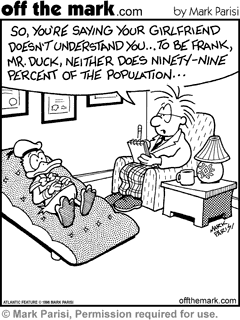
Happy Speech Therapy Month!

Speech and language pathologists (SLPs) work with individuals of all ages from infants to the elderly who have various levels of speech, language and communication problems, and with those who have swallowing, drinking or eating difficulties. The role can involve working with a diverse client group, including people with physical disabilities, learning disabilities, hearing loss/deafness, psychiatric disorders or dementia.
Six Movies for Speech Therapy

After the death of his father King George V and the scandalous abdication of King Edward VIII, Bertie who has suffered from a debilitating speech impediment all his life, is suddenly crowned King George VI of England. With his country on the brink of war and in desperate need of a leader, his wife, Elizabeth, the future Queen Mother, arranges for her husband to see an eccentric speech therapist, Lionel Logue. The King will overcome his stammer and deliver a radio-address that inspires his people and unites them in battle.

The story of a wealthy, arrogant Manhattan attorney whose life is upended when he, as an innocent bystander, is shot during a robbery gone wrong. He sustains a traumatic brain injury related to the incident and spends significant time at a rehab hospital, receiving a number of therapies. The film also gives some interesting insight into how an adult-focused speech pathologist might work with a brain-injured patient.

Based on true events, the film tells the story of psychiatrist/therapist, Dr. William Rivers, who, contrary to prevailing wisdom, used humane, compassionate methods to treat the PTSD-induced speech disorders of his World War I patients, including two of England’s noted poets. Starring Jonathan Pryce, James Wilby and Jonny Lee MIller.

A chronic stutterer joins his high school debate team in order to impress a girl on the team. To overcome his innate anxiety when debating, his therapist suggests that he sing or use a foreign accent. Starring Reece Thompson and Anna Kendrick.

The real story of Elle magazine editor, Jean-Dominique Bauby and the stroke-induced “locked-in” condition which resulted in paralysis of his entire body except for his left eye. It is also the story of the speech therapist who invents an ingenious way for him to communicate. Starring Mathieu Amalric, Emmanuelle Seigner and Marie-Josée Croze.

“The Miracle Worker” (1962): The true story of Helen Keller, a deaf-mute, her exceptional, and legally blind, teacher/therapist, Anne Sullivan, and how she learned to communicate and acquire speech. Starring Anne Bancroft and Patty Duke

Speech Therapy Jokes






The following article has been adapted from the ASHA website
Communication Disorders Common in Older Americans
May is “Better Hearing & Speech Month”. This is a good opportunity to spotlight the importance of early detection and treatment for communication disorders in older Americans. Roughly 40 million Americans experience these disorders. Speech/language or swallowing disorders may result from medical conditions, such as oral cancer, stroke, Parkinson’s, or traumatic brain injury. Adults may also experience voice disorders or speech/language disorders that have persisted since childhood, such as stuttering.
Depending on a person’s specific condition, a speech-language pathologist can assist in potentially life-altering treatment. In the case of someone with oral cancer, for instance, a certified speech-language pathologist can deliver treatment that includes helping the person get used to the differences in the size, shape, and feel of the mouth. The speech-language pathologist will teach the person how to produce speech sounds more clearly and develop better control over weakened muscles in the throat or palate. If swallowing is an issue, treatment can vary from simple changes in food consistency to exercises for weak oral muscles to learning totally new ways to swallow. In many cases, improvement is evident within several months.
Family members and friends can assist a loved one with a communication disorder in numerous ways, including everyday things a family member or friend can do to help make the communication process easier for an older person who may have speaking or hearing challenges.
-
Reduce background noises that may be distracting (e.g., turn off the radio or TV, close the door, or move to a quieter place).
-
Stick to a topic. Avoid quick shifts from topic to topic.
-
Allow extra time for responding. Don’t hurry the person.
-
Be an active listener. Look for hints from eye gaze and gestures. Take a guess (e.g., “Are you talking about the TV news? Yes? Tell me more. I didn't see it.”)
For more information about communication disorders, visit http://IdentifytheSigns.org.